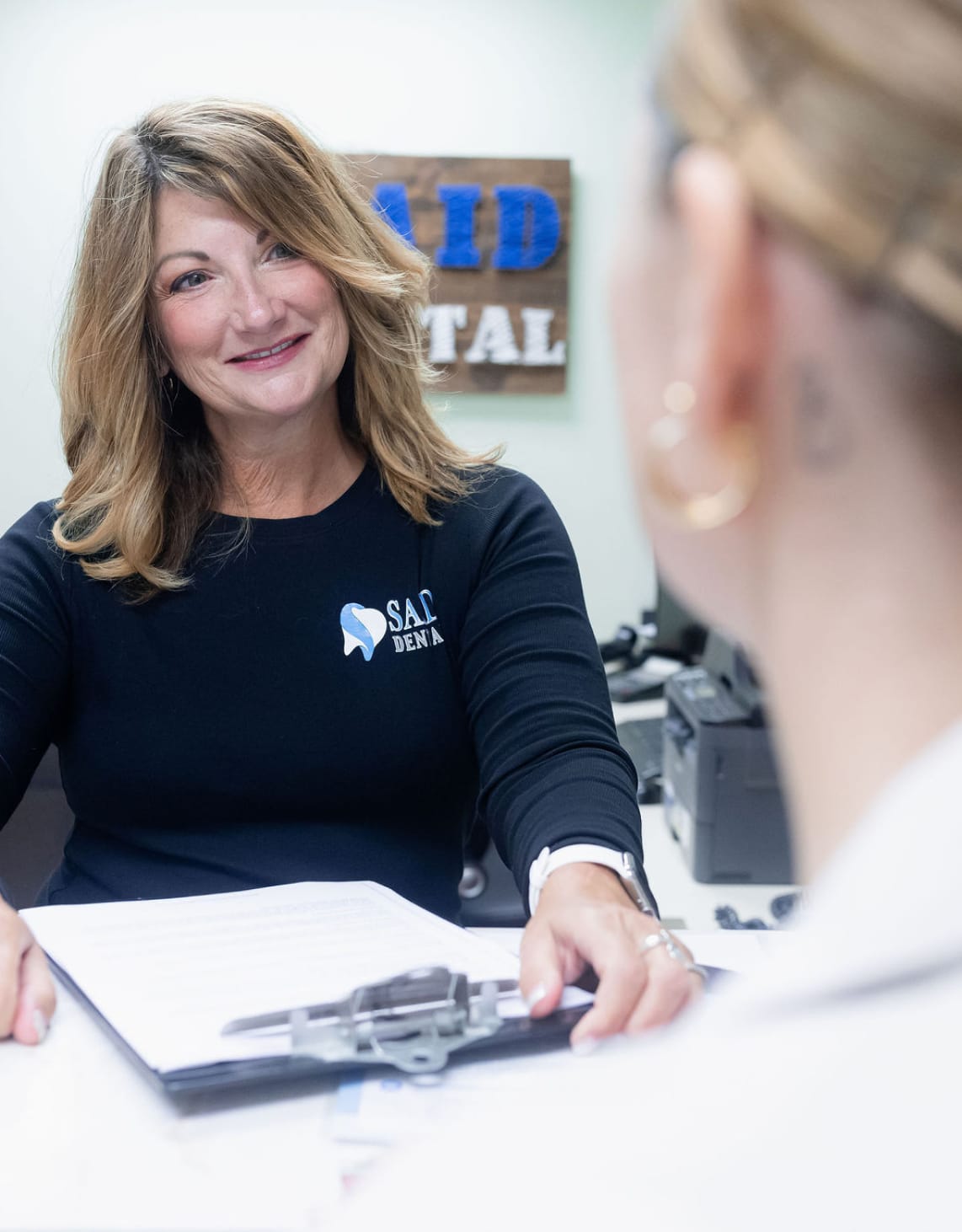
Where Innovation and Compassion Intersect
At Said Dental, we’re more than just a dental office—we’re your partner in achieving and maintaining a healthy, beautiful smile. Dr. Bassem Said and our skilled team are dedicated to providing a full range of dental services, from routine cleanings to advanced treatments and procedures, all delivered with a personal touch. We believe in building lasting relationships with our patients, taking the time to listen to your concerns and understand your needs. Our Canton, OH office is designed to be a welcoming space where you can feel at ease, knowing that you’re receiving the highest standard of care. At Said Dental, we’re not just improving smiles—we’re enhancing lives, one patient at a time.
Dentures for a Complete, Confident Smile
At Said Dental, we understand the importance of a complete, confident smile. Our custom dentures are designed to restore both the function and appearance of your teeth, allowing you to eat, speak, and smile with ease. Whether you need full dentures, partial dentures, or implant-supported options, our team is dedicated to providing a solution that fits your lifestyle and preferences. Using advanced materials and techniques, we create dentures that are comfortable, durable, and natural-looking. We take the time to understand your unique needs, ensuring a personalized approach to your care.
Types of Dentures at Said Dental
At Said Dental, we offer a variety of denture options to suit your unique needs and lifestyle. Whether you need to replace all your teeth or just a few, our team will guide you toward the best solution for restoring your smile.
Full Dentures
Full dentures, also known as complete dentures, are designed to replace all the teeth in either the upper or lower arch, or both. Custom-made for a comfortable fit, full dentures rest securely on your gums and are an ideal solution for patients who have lost most or all of their teeth.
Partial Dentures
Partial dentures are perfect for patients missing some teeth but still have healthy natural teeth remaining. These dentures are held in place by clasps that attach to your existing teeth, offering a stable and functional replacement for the missing ones.
Immediate Dentures
Immediate dentures are placed right after your teeth are extracted, allowing you to walk out with a full smile the same day. These dentures are a temporary solution, providing function and aesthetics while your gums heal, and they can be adjusted for a more permanent fit later on.
Implant-Retained
Dentures
For added stability, implant-retained dentures are secured using dental implants that are surgically placed into your jawbone. This option offers superior comfort, improved chewing ability, and a more natural feel, as the dentures are anchored firmly in place.


Benefits of Dental Exams
Dental exams performed by a reputable dentist in Canton, OH, like Dr. Said, will improve your overall health by:
Remove Plaque and Tartar
Plaque is a sticky film of bacteria that forms on your teeth. If plaque is not removed, it can harden into tartar, which is much more difficult to remove. Dental cleanings remove plaque and tartar from your teeth, helping to keep your smile healthy.
Protect Your Tooth Enamel
Plaque and tartar can also damage your tooth enamel, the hard outer layer of your teeth. When the enamel is damaged, it is more susceptible to decay and other oral health problems. Dental cleanings help to protect your tooth enamel and keep your smile looking its best.
Whiten Your Teeth
Over time, your teeth can become stained by coffee, tea, tobacco, and other dark-colored foods and drinks. Dental cleanings can help to remove these stains, leaving you with a brighter, whiter smile.
The Dentures Process: What to Expect
At Said Dental, we understand that getting dentures is a significant step toward restoring your smile, comfort, and confidence. Our team is here to guide you through every stage of the process, ensuring that your experience is smooth and stress-free.
1. Personalized Consultation
Dr. Said will take the time to understand your unique needs and goals, discussing the different types of dentures available to find the best fit for you during this initial consult. We’ll also perform a thorough exam and take digital scans and impressions to craft dentures that are customized just for you.
2. Tooth Extractions (if needed)
If you require any extractions, our team will handle this step with care, ensuring your comfort throughout the process. For those choosing immediate dentures, we’ll have your new smile ready the same day as your extraction, so you can walk out of our office with confidence.
3. Crafting Your Custom Dentures
Once we’ve gathered all the necessary details, we’ll work with a trusted lab to create dentures that are not only functional but also look and feel like your natural teeth. We’ll be in touch every step of the way, ensuring the process is seamless.
4. Fitting and Fine-Tuning
When your dentures are ready, we’ll have you come back for a fitting. Dr. Said and our team will make sure they fit comfortably and securely, and we’ll adjust them as needed to provide the best possible fit. We want your dentures to feel as natural as they look.
5. Follow-Up Care
We’ll schedule follow-up visits to ensure your dentures are fitting well and making any needed adjustments as your mouth adjusts. For implant-retained dentures, we’ll monitor your progress closely to ensure everything is integrating properly.
Who Can Benefit From Dentures?
At Said Dental, we believe everyone deserves a full, healthy smile. Dentures are a great option for many patients who are missing teeth, whether you’ve lost one tooth or an entire arch. Our team will work closely with you to determine if dentures are the best solution for your needs and lifestyle. You may be a good candidate for dentures if you have:

